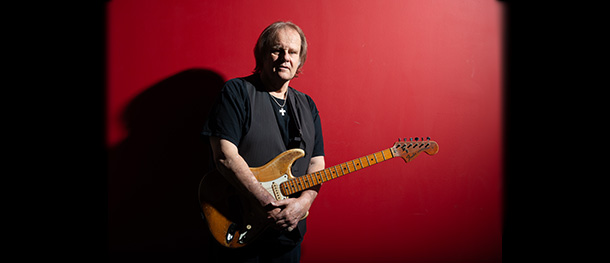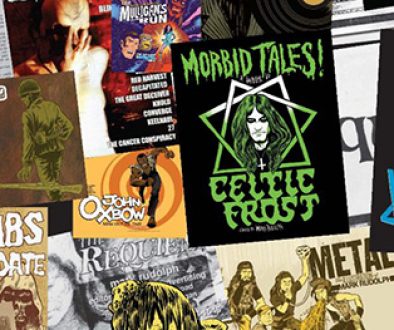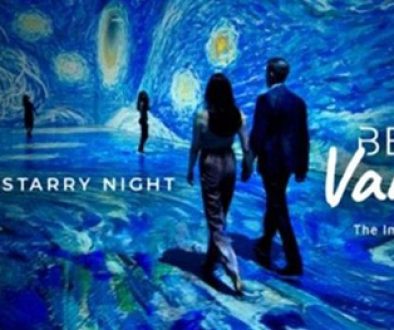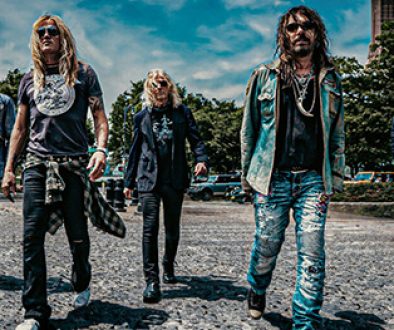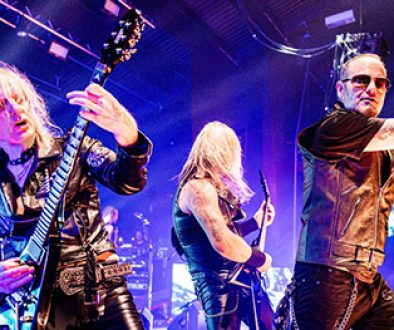Walter Trout Releases Official Album Trailer For ‘Ordinary Madness’
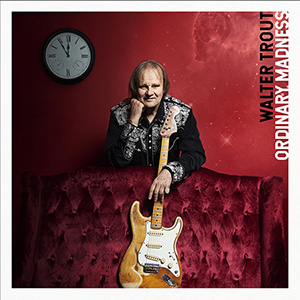 Walter Trout last week released his brand new studio album Ordinary Madness, via Provogue. To celebrate this he has revealed the album trailer where he talks more in depth about his inspirations behind the record (see below).
Walter Trout last week released his brand new studio album Ordinary Madness, via Provogue. To celebrate this he has revealed the album trailer where he talks more in depth about his inspirations behind the record (see below).
Admirably open about his troubled youth, and his own ongoing struggles with mental health, the bluesman had spent recent tours soothing himself by scribbling down his thoughts and feelings. It was only later he realised he’d just written the most honest lyric-sheet of his career – and felt he had an opportunity to let fans share and identify with him. “Everybody is dealing with something,” he says. “And I’m no different from anybody else. Ordinary Madness doesn’t mean you’re gonna end up in a mental institution. It’s just being human. It’s common humanity.”
Trout convened his band of Michael Leasure (drums), Johnny Griparic (bass) and Teddy ‘Zig Zag’ Andreadis (keys) – along with long-time producer Eric Corne, plus special guests Skip Edwards, Drake ‘Munkihaid’ Shining and Anthony Grisham. The backdrop, once again, was the private LA studio of Doors legend Robby Krieger. “The whole place is full of vintage gear, and it’s all there for you, whatever you want. The keyboard that Ray Manzarek used in The Doors – it’s just fucking sitting there. I remember, on the rhythm track for OK Boomer, Michael Dumas, who runs the studio, comes walking in and says: ‘Here’s the SG that Robby used in The Doors – wanna try this?’ Then, for the rhythm guitar on Heartland, he says: ‘Here’s one of James Burton’s Paisley Telecasters…’”
Musically, Trout’s antennae are up, as he pushes the envelope on the psychedelic layered vocal harmonies of The Sun Is Going Down, a song about dealing with ageing. “With that vocal intro, it wasn’t planned, it was just one of those experimental things,” he says. “I just knew I wanted it to start with something fucking weird. And I love the way that song whips into that almost heavy-metal jam at the end. Lyrically, it’s about running out of time. You gotta look at death, deal with it, accept it. That’s a condition of being alive.”
On the blissed-out anthemics of Up Above My Sky, which include nods to peak-period Pink Floyd, he states, “I told Marie that I had a dream I was playing a song called Up Above My Sky, but that I didn’t know what to do with it, and twenty minutes later, she came back and said, ‘Here are the lyrics’. She’d written about her observation that at night, in the darkness, we can see much further into the universe than we can during the day. It is a metaphor about the fact that it is when we face our own darkness that we have a potential for understanding the universe within – including our connection to the light.”
Elsewhere, the new material runs the gamut. “One day, riding in the van, I just wrote down: ‘Sometimes I do my best but I fail/I know it happens to everyone’,” remembers Trout of the lyric that became the sweet, country-touched lilt of My Foolish Pride. “Heartland is a metaphor for anyone who realizes that if they want to achieve their dreams, they may have to go and be somewhere else. With Final Curtain Call, I was thinking of a Led Zeppelin-type approach, but it turned into something else. It’s another song about dealing with the passing of time and the inevitability of death.”
Trout convened his band of Michael Leasure (drums), Johnny Griparic (bass) and Teddy ‘Zig Zag’ Andreadis (keys) – along with long-time producer Eric Corne, plus special guests Skip Edwards, Drake ‘Munkihaid’ Shining and Anthony Grisham. The backdrop, once again, was the private LA studio of Doors legend Robby Krieger. “The whole place is full of vintage gear, and it’s all there for you, whatever you want. The keyboard that Ray Manzarek used in The Doors – it’s just fucking sitting there. I remember, on the rhythm track for OK Boomer, Michael Dumas, who runs the studio, comes walking in and says: ‘Here’s the SG that Robby used in The Doors – wanna try this?’ Then, for the rhythm guitar on Heartland, he says: ‘Here’s one of James Burton’s Paisley Telecasters…’”
Musically, Trout’s antennae are up, as he pushes the envelope on the psychedelic layered vocal harmonies of The Sun Is Going Down, a song about dealing with ageing. “With that vocal intro, it wasn’t planned, it was just one of those experimental things,” he says. “I just knew I wanted it to start with something fucking weird. And I love the way that song whips into that almost heavy-metal jam at the end. Lyrically, it’s about running out of time. You gotta look at death, deal with it, accept it. That’s a condition of being alive.”
On the blissed-out anthemics of Up Above My Sky, which include nods to peak-period Pink Floyd, he states, “I told Marie that I had a dream I was playing a song called Up Above My Sky, but that I didn’t know what to do with it, and twenty minutes later, she came back and said, ‘Here are the lyrics’. She’d written about her observation that at night, in the darkness, we can see much further into the universe than we can during the day. It is a metaphor about the fact that it is when we face our own darkness that we have a potential for understanding the universe within – including our connection to the light.”
Elsewhere, the new material runs the gamut. “One day, riding in the van, I just wrote down: ‘Sometimes I do my best but I fail/I know it happens to everyone’,” remembers Trout of the lyric that became the sweet, country-touched lilt of My Foolish Pride. “Heartland is a metaphor for anyone who realizes that if they want to achieve their dreams, they may have to go and be somewhere else. With Final Curtain Call, I was thinking of a Led Zeppelin-type approach, but it turned into something else. It’s another song about dealing with the passing of time and the inevitability of death.”

